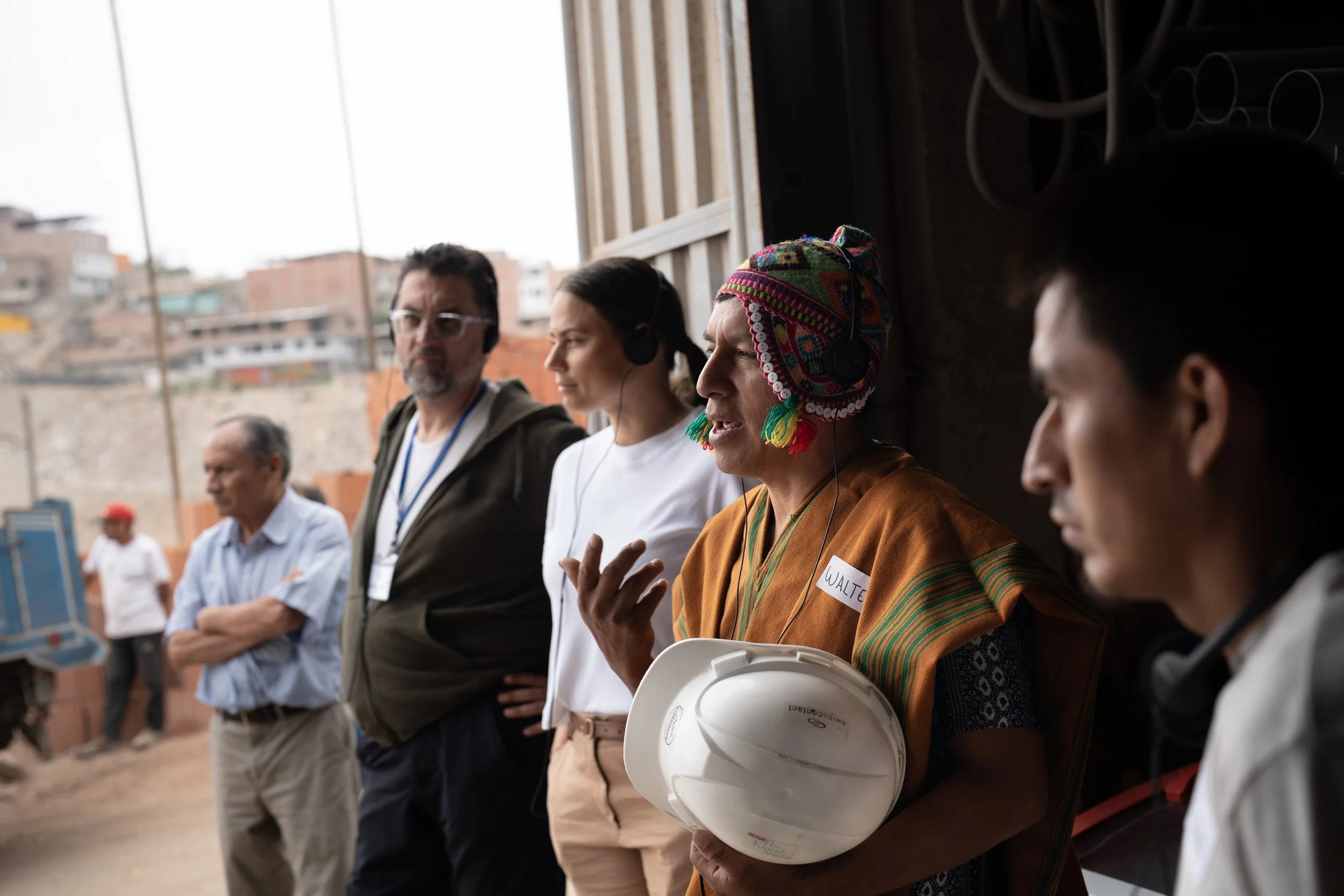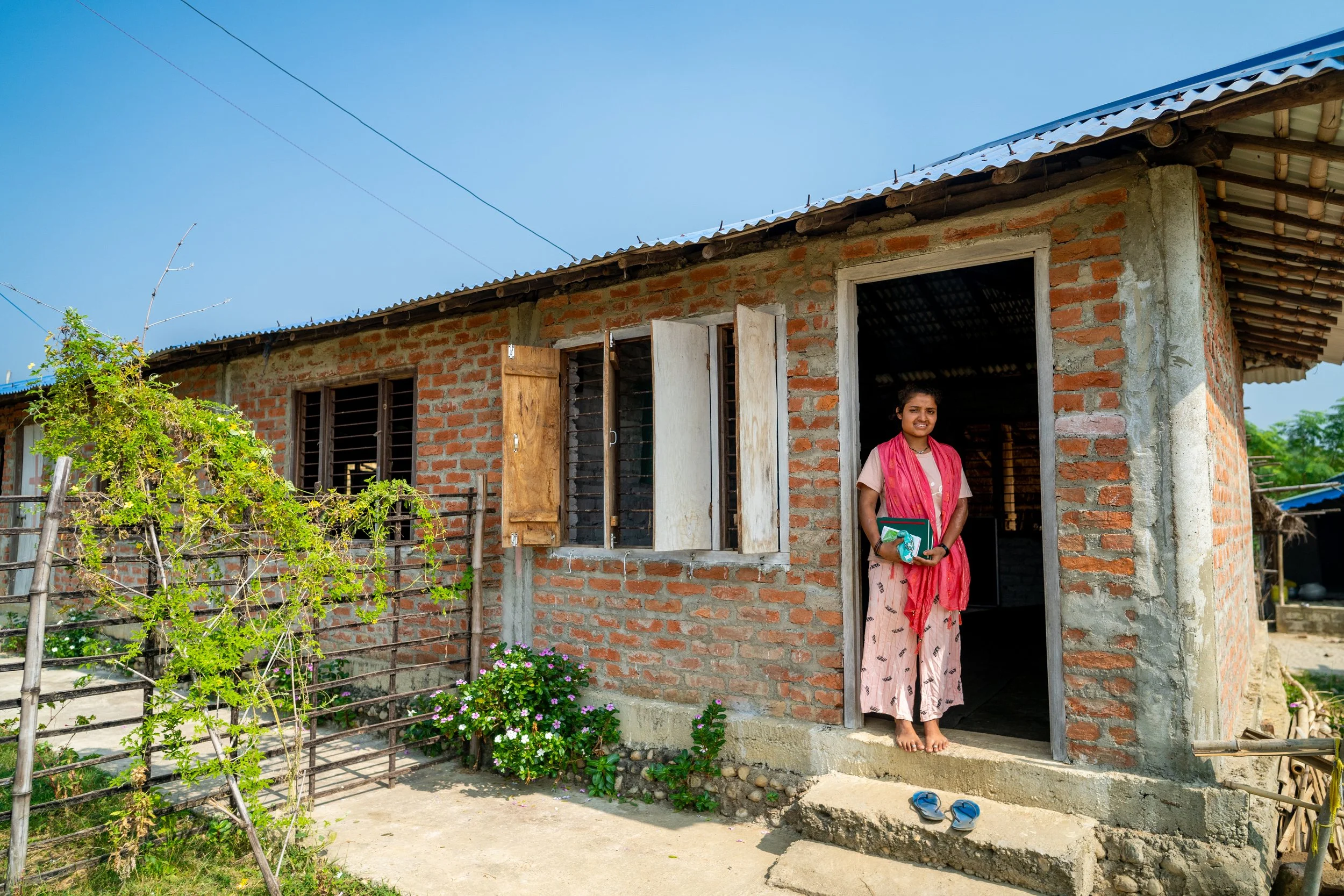Affordable Housing & Technology
Housing Systems
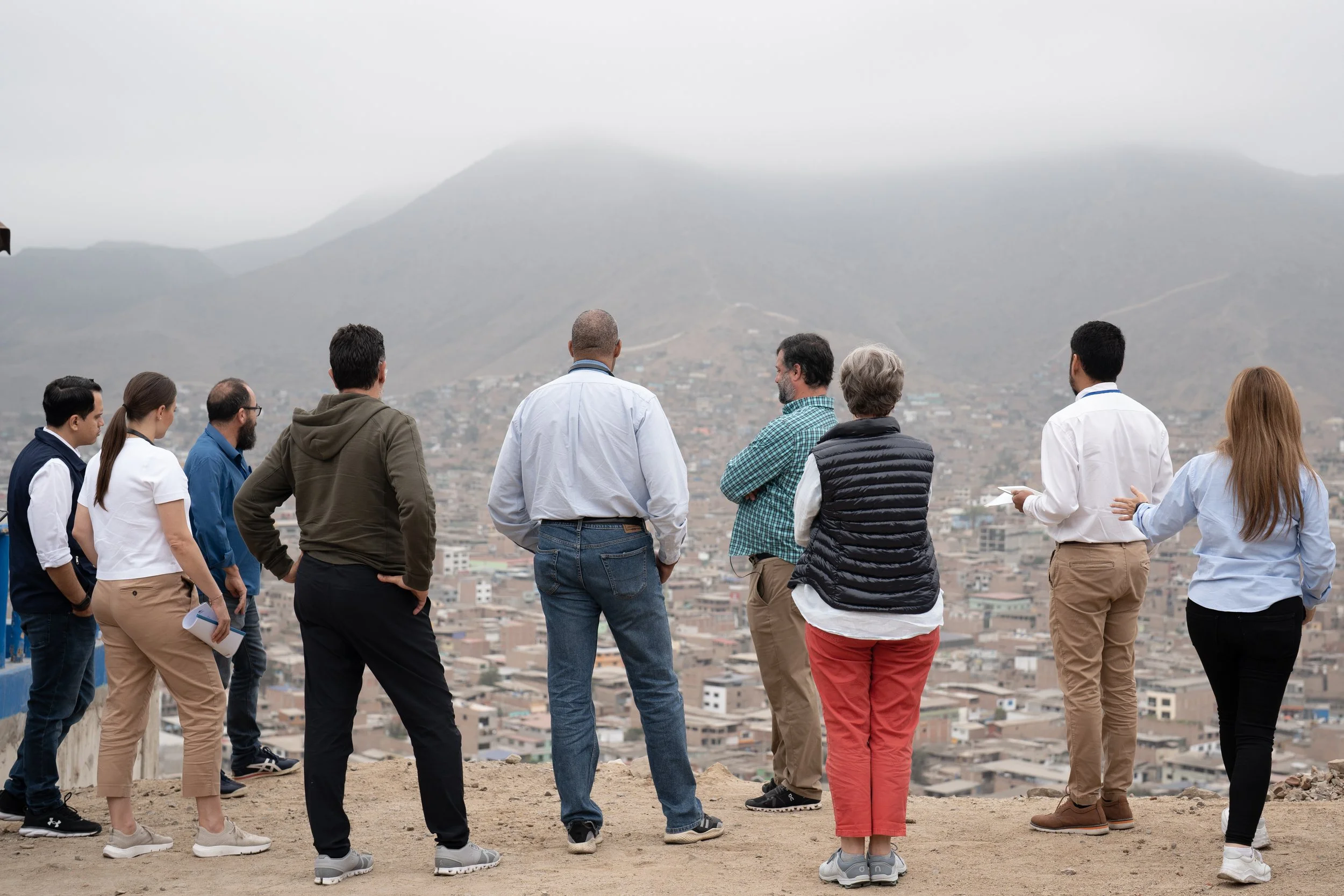
The Beginning
The Hilti Foundation's "Housing Systems" initiative is dedicated to transforming the affordable housing sector by addressing systemic challenges beyond individual home construction. Recognizing that nearly three billion people globally face inadequate housing – with 1.1 billion residing in urban slums. Our mission is to make building industries and their solutions accessible and affordable for everyone, fostering collaboration across the sector, and ultimately provoking systemic change that allows low-income families to build and live in safer, better futures.
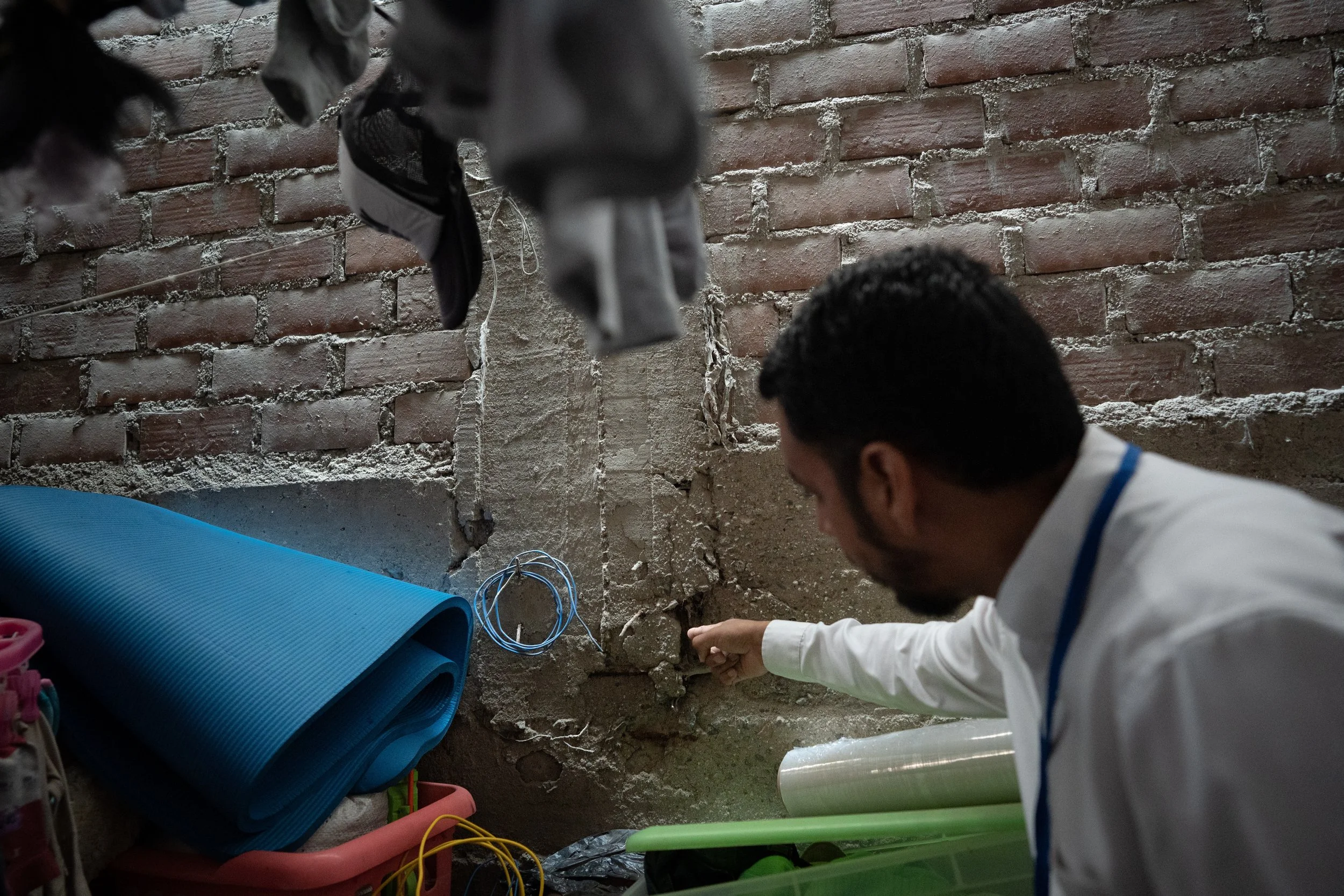
The Challenge
The provision of adequate housing is a fundamental human right, yet governments and existing markets often struggle to meet the overwhelming demand. Low-income families frequently lack access to innovative products, essential services, and suitable financing, leading to widespread substandard housing. In many regions, particularly in Latin America, informal self-construction accounts for a significant portion of housing development (e.g., 80% in Peru).
This common practice, often undertaken without professional supervision or proper training, results in poorly constructed, unsafe, and vulnerable homes. Furthermore, the housing industry itself is often fragmented, lacking coordination among key actors and sufficient data to drive effective policy and investment.
Our Approach
The Hilti Foundation tackles these challenges through a multi-faceted approach, engaging various partners and initiatives to create a cohesive housing ecosystem:
Inclusive Industries
This initiative takes a holistic, market-based approach to creating functional housing markets for low-income families. The project works across Peru (construction services), the Philippines (walling & foundations), and India (roofing), where it develops and delivers affordable building products and services. The goal is to create win-win situations where businesses find profitable opportunities by extending supply chains, creating financial mechanisms, and adapting regulations to provide families with access to safer housing.
Swisscontact Construya
Addressing the need for improved construction quality, this program focuses on capacity building for masons. By raising awareness about better construction practices and integrating certified training, Construya empowers informal builders to utilize innovative, high-quality materials effectively.
Habitat for Humanity's Build and Influence (B&I)
As a convenor for systemic change, Habitat for Humanity International in collaboration with the Hilti Foundation, is developing a sophisticated housing systems assessment tool and a comprehensive research hub to inform strategic interventions and knowledge sharing. It also operates the Urban Housing Practitioners Hub (UHPH), fostering collaboration and facilitating knowledge exchange among housing professionals.
Progressive Housing (VIPRO)
in Lima, Peru
The VIPRO project is built on a systems approach that addresses multiple parts of the informal housing challenge to create sustainable change. It focuses on four key components:
Social: We aim to influence homeowner decision-making so families choose to invest in safer, structurally sound housing.
Technical: We leverage partnerships to develop and provide access to feasible, affordable, and sustainable technical solutions for common construction problems.
Economic: We work with partners to establish financial mechanisms, such as improved savings practices and credit products, that help homeowners afford safer housing solutions.
Government: We engage with government bodies and other institutions to ensure that supportive regulations and standards for high-quality building are in place across the country.
Objectives and Goals
The overarching goal of this initiative is to create a systemic framework that enables safe, affordable, and quality housing for all, particularly low-income families. Key objectives include:
To break existing paradigms in selected industries (e.g., roofing, walling, construction services) by connecting the housing needs of low-income families with new business opportunities and innovative solutions.
To make building industries, their products, and services accessible and affordable for everyone, fostering inclusive markets.
To ensure higher quality construction practices and better adherence to safety standards, especially in informal self-construction environments.
To enhance the skills and knowledge of construction workers, master builders, and other local stakeholders to deliver better homes.
To create a robust and supporting housing ecosystem by driving collaboration among diverse actors, developing shared data, and advocating for targeted policies and regulations.
To facilitate access to appropriate housing finance, land, and sustainable products for underserved communities.
Partnerships and Collaborations
Habitat for Humanity International (HFHI) - Terwilliger Center for Innovation in Shelter (TCIS): A key partner leading the "Inclusive Industries" approach, focusing on developing and scaling market-based solutions for affordable housing products and services.
Habitat for Humanity International (HFHI) - Build and Influence (B&I): HFHI plays a pivotal role as a convenor for systems change. Through B&I, it collaborates on developing a housing ecosystem assessment tool, a research agenda, and operates UHPH.
United Nations (UN) and Other Leading Organizations: HFHI collaborates with organizations such as the UN to resolve the issue of inadequate housing data by developing a comprehensive housing index.
Government Bodies: Collaboration with local and national government authorities is implicit in the work of advocating for policy change, integrating programs, and addressing regulatory challenges in informal settlements.
Swisscontact (Construya and VIPRO): A crucial partner in capacity building for construction workers. Swisscontact Construya implements qualification programs for masons, promoting quality construction practices. Swisscontact also collaborates on the Progressive Housing (VIPRO) project, empowering "master builders" through training and technical support in Peru.
Urban Housing Practitioners Hub (UHPH): This platform actively facilitates systemic change and fosters collaboration among housing professionals and organizations in regions like Latin America and Asia.
Local Communities and "Master Builders": Essential partners on the ground, master builders receive direct training and apply improved practices, while local communities actively engage in progressive housing initiatives, providing invaluable insights and ensuring local relevance.
Private Sector Companies: Partners within the "Inclusive Industries" framework, who connect with low-income families' needs by offering new business opportunities and delivering appropriate, affordable solutions.
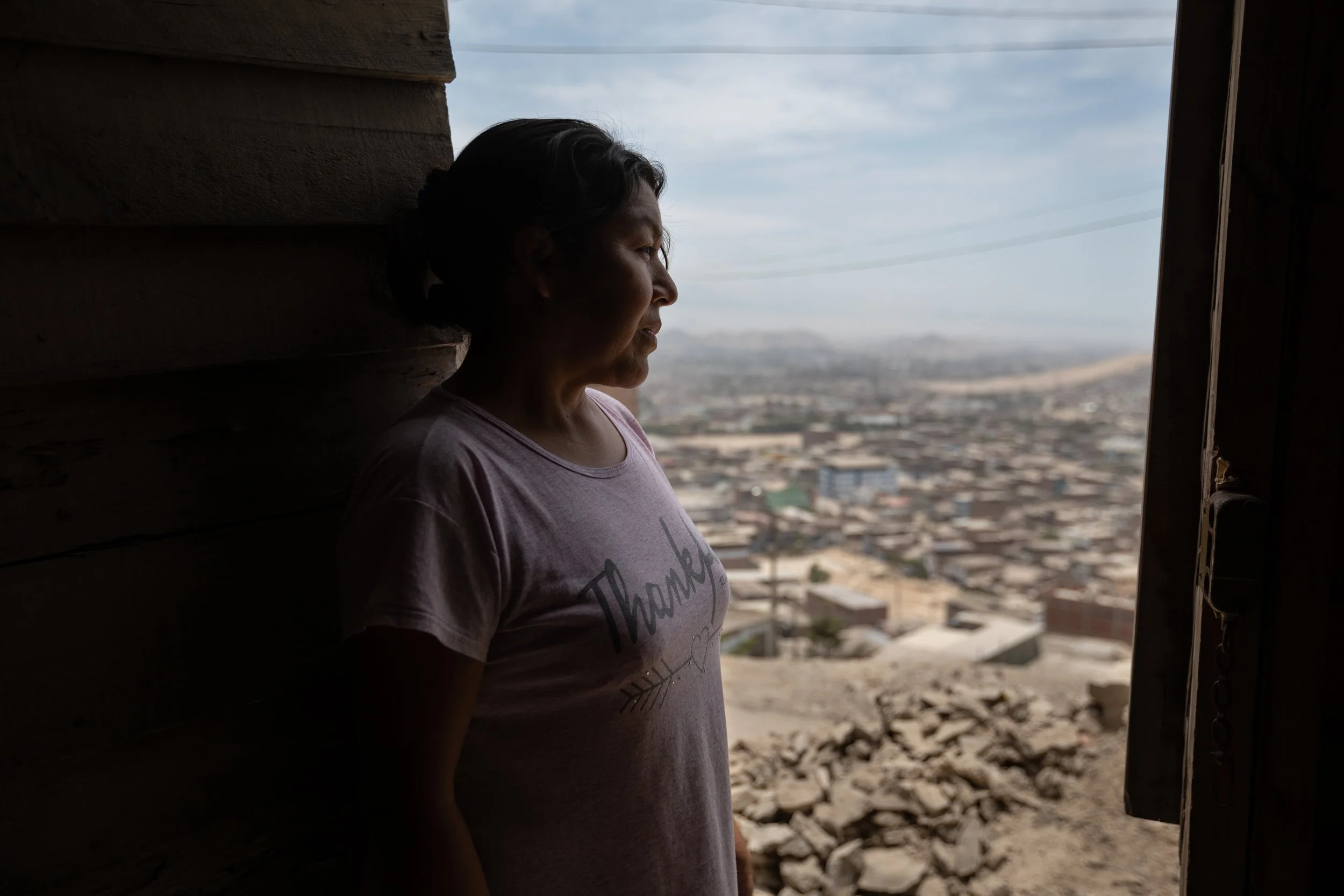
Impact
Improved Living Conditions: Initiatives like Swisscontact Construya have sensitized 1.6 million residents and directly led to 160,000 residents living in better, safer conditions, demonstrating the program's sustainable impact.
Enhanced Construction Quality: VIPRO's pilot implementations in Peru have shown significant improvements in construction quality and beneficiaries' quality of life, empowering master builders through training and improving local building practices.
Market Transformation: By fostering inclusive industries, low-income households gain access to previously unavailable products and services, creating new economic opportunities within the construction sector.
Knowledge & Collaboration: The development of a robust housing ecosystem assessment tool and the operational Urban Housing Practitioners Hub are fostering greater collaboration and data-driven decision-making across the sector.
Future Outlook & Engagement
We are committed to further scaling and refining the Housing Systems initiative for even greater impact:
Improved Living Conditions
Initiatives like Swisscontact Construya have sensitized 1.6 million residents and directly led to 160,000 residents living in better, safer conditions, demonstrating the program's sustainable impact.
Enhanced Construction Quality
VIPRO's pilot implementations in Peru have shown significant improvements in construction quality and beneficiaries' quality of life, empowering master builders through training and improving local building practices.
Market Transformation
By fostering inclusive industries, low-income households gain access to previously unavailable products and services, creating new economic opportunities within the construction sector.
Knowledge & Collaboration
The development of a robust housing ecosystem assessment tool and the operational Urban Housing Practitioners Hub are fostering greater collaboration and data-driven decision-making across the sector.









